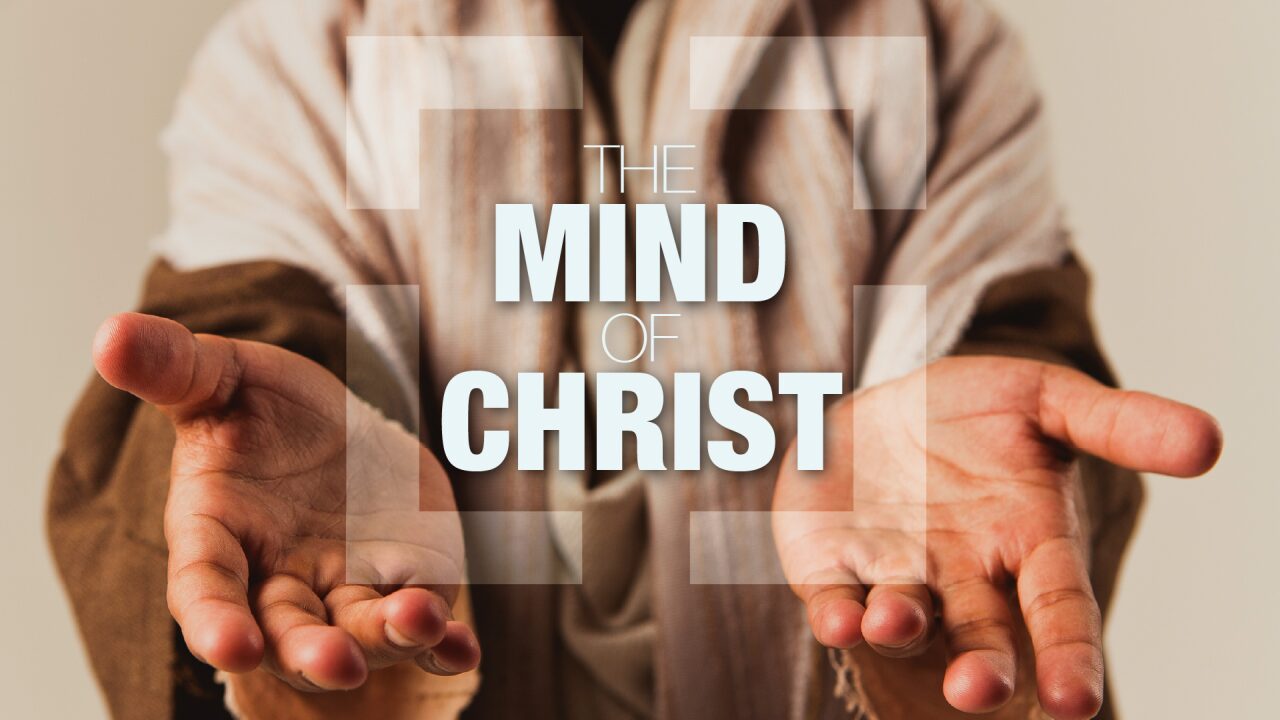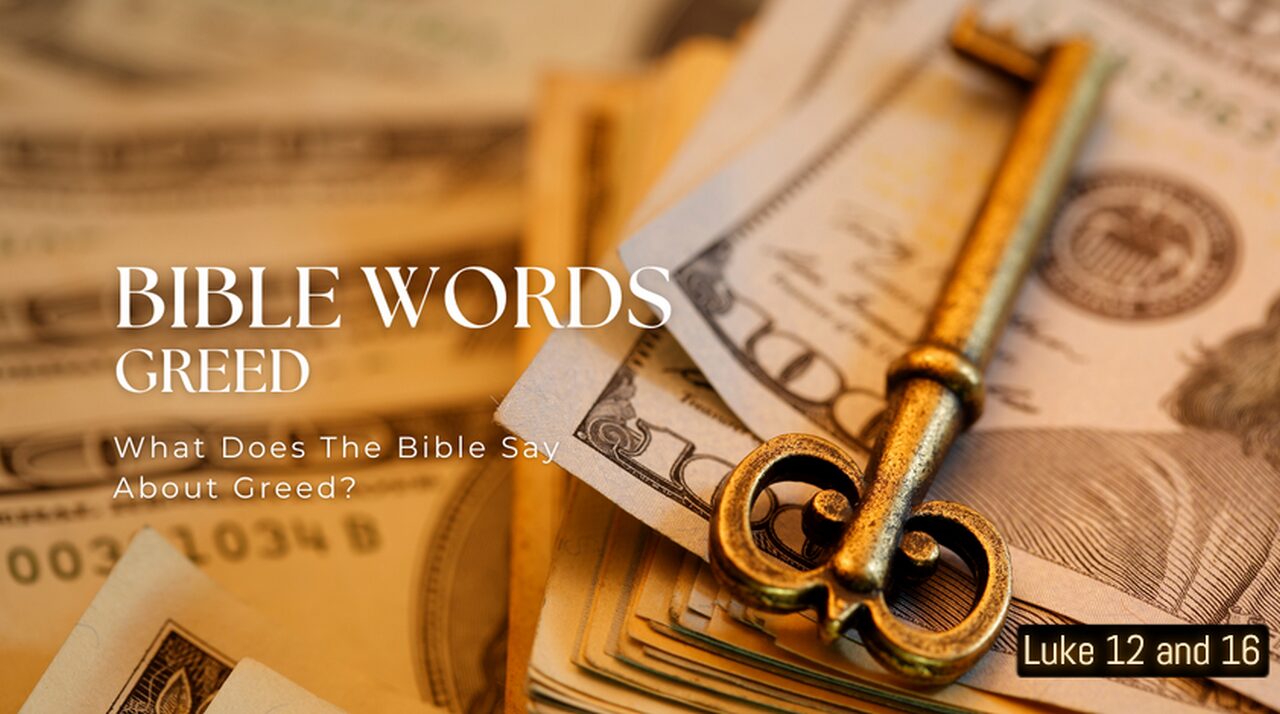by Martin Bobgan, PhD.
Do children and adults really need self-esteem? Does low self-esteem lead to serious life problems? Should parents attempt to build self-esteem in their children? Does the Bible encourage self-esteem? Many Christians have assumptions about self-esteem. But, what does the Bible say? What does research say?
The Genesis of Self-Esteem
The self-esteem movement has its most recent roots in clinical psychology, namely in the personality theories of such men as William James, Alfred Adler, Erich Fromm, Abraham Maslow, and Carl Rogers. It became further popularized by their many followers. Nevertheless, the roots of the self-esteem movement reach further back into human history.
What is the LIE of the Ages? Find out in this revolutionary new book.
The self-esteem movement began in the third chapter of Genesis. Initially Adam and Eve were God-conscious and aware of one another and their surroundings rather than being self-conscious. Their awareness of themselves was incidental and peripheral to their focus on God and one another. Adam realized that Eve was bone of his bone and flesh of his flesh, but he was not self-aware in the same sense that his descendants would be. Self was not the issue until the Fall.
Partaking of the tree of the knowledge of good and evil did not bring godly wisdom. It brought guilt, fear, and separation from God. Thus, when Adam and Eve heard God approaching, they hid in the bushes. But God saw them and asked, “Who told thee that thou wast naked? Hast thou eaten of the tree, whereof I commanded thee that thou shouldest not eat?” (Genesis 3:11).
Sinful Self
Adam and Eve answered with the first example of self-justification. First Adam blamed Eve and God, and then Eve blamed the serpent. The fruit of the knowledge of good and evil spawned the sinful self with all of its self-love, self-esteem, self-acceptance, self-justification, self-righteousness, self-actualization, self-denigration, self-pity and other forms of self-focus and self-centeredness.
The present Self-Etc. movement is thus rooted in Adam and Eve’s sin. Through the centuries mankind has continued to feast at the tree of the knowledge of good and evil, which has spread its branches of worldly wisdom. It has branched out into the vain philosophies of men and, more recently, the “scientized” philosophies and metaphysics of modern psychology.
Religious incantations for self-worth, self-love, and self-acceptance ooze out of the TV tube, drift across radio waves, and entice through advertising. From the cradle to the grave, self-promoters promise to cure all of society’s ills through doses of self-esteem, self-worth, self-acceptance, and self-love. And everyone, or nearly everyone echoes the refrain: “You just need to love and accept yourself the way you are. You just need to forgive yourself” and “I just have to accept myself the way I am. I’m worth it. I am a lovable, valuable, forgivable person.”
Christian Response to the World
How is the Christian to combat the thinking of the world, which glorifies the self and places self at the center as the be-all and end-all of existence? How is the Christian to be faithful to our Lord’s command to be in the world, but not of the world? Can he adopt and adapt the popular philosophy/psychology of his culture, or must he stand apart as one who has been set apart by God and view his culture by the light of the Word? Jesus said:
Come unto me, all ye that labour and are heavy laden, and I will give you rest. Take my yoke upon you, and learn of me; for I am meek and lowly in heart: and ye shall find rest unto your souls. For my yoke is easy, and my burden is light (Matthew 11:28-30).
Here is a call to give up one’s own way and to come under the yoke of humility and service – an emphasis on yoking – on a teaching and living relationship. Jesus described His call for followers in different words, but to the same relationship and with the same intent, when He said:
If any man will come after me, let him deny himself, and take up his cross, and follow me. For whosoever will save his life shall lose it: and whosoever will lose his life for my sake shall find it (Matthew 16:24-25).
No Self-Love Commandment
Jesus does not command self-love, but rather love for God and love for one another. The Bible presents an entirely different basis for love than humanistic psychology preaches. Rather than promoting self-love as the basis for loving others, the Bible says that God’s love is the true source. Human love is mixed with self-love and may be ultimately self-serving. But God’s love is self-giving. Therefore, when Jesus calls His disciples to deny self and to take up His yoke and His cross, He is calling them to a self-giving love, not a self-satisfying love. Until the advent of humanistic psychology and its heavy influence in the church, Christians generally thought of self-esteem as a sinful attitude.
In Part Two of this series, we will look at what the Bible says about self-love, particularly the Second Great Commandment, and what research says about self-esteem.
Part Two
Even though the Bible does not teach self-love, self-esteem, self-worth, or self-actualization as virtues, helps, or goals, a vast number of present-day Christians have been deceived by the self-teachings of humanistic psychology. Rather than resisting the enticement of the world they become culture-bound. Not only do they not resist the tidal wave of selfism; they are riding the crest of self-esteem, self- acceptance, and self-love. One can hardly tell the difference between the Christian and the non-Christian in the area of the self, except that the Christian adds God as the main source for his self-esteem, self-acceptance, self-worth, and self-love.
Through slogans, one-liners, and twisted Scripture, many Christians jump on the existential bandwagon of humanistic psychology and set up their own cheering section. Thus, any criticism voiced against the teachings of self-worth, self-love, and self-esteem is regarded as ipso facto proof that the speaker wants people to be miserable. Moreover, any criticism against the self-esteem movement is seen as dangerous to society, since self-esteem is considered to be the panacea for its ills. Then, in the church, if one does not wholly endorse a self-esteem theology, he is accused of promoting worm theology.
If there is one thing the world and many in the church have in common these days, it’s the psychology of self-esteem. Although Christians may disagree about some of the nuances of self-esteem, self-worth, and self-acceptance, and even on some of the finer points of definition and how it is attained, too many have joined forces against what they believe is a formidable enemy – low self-esteem. Yet, even the world cannot justify promoting high self-esteem through its own methods of research.
No Research Justification for Self-Esteem
A few years ago the California legislature passed a bill creating the California Task Force to Promote Self-Esteem and Personal and Social Responsibility. The legislature funded the bill with $245,000 a year for three years, for a total of $735,000. The twofold title of the Task Force was quite an assumption. No one has ever demonstrated that promoting self-esteem is in any way related to personal and social responsibility. Nor has anyone proved that all those who exhibit personal and social responsibility have high self-esteem. Self-esteem and social and personal responsibility actually appear to be negatively rather than positively related.
The Mission Statement of the Task Force is as follows:
- Seek to determine whether self-esteem, and personal and social responsibility are the keys to unlocking the secrets of healthy human development so that we can get to the roots of and develop effective solutions for major social problems and to develop and provide for every Californian the latest knowledge and practices regarding the significance of self-esteem, and personal and social responsibility.1
The Task Force believed that esteeming oneself and growing in self-esteem would reduce “dramatically the epidemic levels of social problems we currently face.”2
Is There a Positive Relationship Between High or Low Self-Esteem and Personal and Social Responsibility?
In order to investigate this relationship the state Task Force hired eight professors from the University of California to look at the research on self-esteem as it relates to the six following areas:
1. Crime, violence and recidivism.
2. Alcohol and drug abuse.
3. Welfare dependency.
4. Teenage pregnancy.
5. Child and spousal abuse.
6. Children failing to learn in school.
Seven of the professors researched the above areas and the eighth professor summarized the results. The results were then published in a book titled The Social Importance of Self-Esteem.3 Has the relationship been established between self-esteem and social problems? David L. Kirk, syndicated writer for the San Francisco Examiner,4 said it bluntly:
- That . . . scholarly tome, The Social Importance of Self-Esteem, summarizes all the research on the subject in the stultifyingly boring prose of wannabe scientists. Save yourself the 40 bucks the book costs and head straight for the conclusion: There is precious little evidence that self-esteem is the cause of our social ills.
Even though they searched for a connection between low self-esteem and problematic behavior, they could not find a cause and effect link. However, more recent studies indicate a definite relationship between violent behavior and high self-esteem. Nevertheless, faith in self-esteem dies hard and schools continue to work on building high self-esteem.
Worse than the continuance of self-esteem teachings in the world is the faith that Christians continue to place in self-esteem and self-worth teachings. Thus, the secular self-esteem movement is not a frontal attack against the Bible with the battle-lines clearly displayed. Instead it is skillfully subversive and is truly the work, not of flesh and blood, but of principalities, powers, the rulers of darkness of this world, and spiritual wickedness in high places, just as delineated by Paul near the end of Ephesians. The sad thing is that many Christians are not alert to the dangers. More than we can number are being subtly deceived into another gospel: the gospel of self.
Biblical Love
Jesus calls His own into a love relationship with Himself and with one another. Their joy is to be found in Him, not in self. Their love comes from His love for them. Thus, their love for one another does not come from self-love or self-esteem, nor does it enhance self-esteem. The emphasis is on relationship, fruitfulness, and readiness to be rejected by the world. A believer’s identification is in Jesus to the point of suffering and following Him to the cross. Only through strained semantics, labored logic and exploited exegesis can one even attempt to demonstrate that self-esteem is biblical or even a part of the church tradition or teaching.
The focus of love in the Bible is upward and outward instead of inward. Love is both an attitude and action to one another. And while love may include sentiment and emotional affection, it is primarily volitional action for the glory of God and the good of others. Thus when Jesus said, “Thou shalt love the Lord thy God with all thy heart, and with all thy soul, and with all thy mind, and with all thy strength” (Mark 12:30), He was saying that all of our being is to be committed to loving and, therefore, pleasing God. Love for God is expressed with a thankful heart committed to doing what pleases God according to what has been revealed in the Bible. It is not a grudging kind of obedience, but an eagerness to conform to His gracious will and to agree with God that He is the source and standard for all that is right and good.
The Second commandment is an extension or expression of the First Commandment: “Thou shalt love thy neighbor as thyself” (Mark 12:31). John elaborates on this. He describes the sequence of love. In contrast to the teachers of self-love, who say that people cannot love God and others until they love themselves, John says that love originates with God and then extends to others:
- We love Him because He first loved us. If a man say, I love God, and hateth his brother, he is a liar: for he that loveth not his brother whom he hath seen, how can he love God whom he hath not seen? And this commandment have we from Him, that he who loveth God love his brother also (1 John 4:19-21).
God loved us first, which enables us to love Him, which then expresses itself in love for one another.
From Adam’s first breath, mankind was designed to live in relationship with God, not as autonomous selves. The entire Bible rests on that relationship, for after Jesus answered the Pharisee by saying that the Greatest Commandment is to love God and the second is to love neighbor as oneself, He said: “On these two commandments hang all the law and the prophets” (Matthew 22:40). Jesus came to save us from self and to reestablish that love relationship for which we were created. Through the centuries books have been written about loving God and loving one another. However, today the church is increasingly inundated with books telling us how to love ourselves better, esteem ourselves more, accept ourselves no matter what, and build our own self-worth.
Sign up here to receive the Moments with My Master email sent out for the edification of Jesus’ body.
End Notes
1 California Task Force to Promote Self-Esteem and Personal and Social Responsibility. “1987 Annual Report to the Governor and the Legislature,” p. V.
2 Andrew M. Mecca, “Chairman’s Report.” Esteem, Vol. 2, No. 1, February 1988, p. 1.
3 Andrew M. Mecca, Neil J. Smelser, and John Vasconcellos, eds. The Social Importance of Self-Esteem. Berkeley: University of California Press, 1989.
4 David L. Kirk, “Lack of Self Esteem is Not the Root of All Ills.” Santa Barbara News-Press, 15 January 1990.
More on PsychoHeresy here.
Support | STORE | Podcasts | Jail/Prison Ministry | Mexico Mission here | All Ministry Updates | Fresh Start with God | “Fear hath Torment” – 100% Deliverance from all Fear! [podcast] | Resurrection Grace [podcast] | G.O.D. = Game Over Devil [podcast] | Justification | Grace and Good Works [podcast] | More on Assurance here | Eternal Security Debunked | The Cross Life | 100’s of Christ-centered, Scripture-rich podcasts for your edification in Christ.



Articles
“Let Brotherly Love Continue” [podcast]

“Let Brotherly Love Continue.” Hebrews 13:1
“And walk in love, as Christ also hath loved us, and hath given himself for us an offering and a sacrifice to God for a sweetsmelling savour.” Ephesians 5:2
1 John 4
God Is Love
“7 Beloved, let us love one another: for love is of God; and every one that loveth is born of God, and knoweth God.
8 He that loveth not knoweth not God; for God is love.
9 In this was manifested the love of God toward us, because that God sent his only begotten Son into the world, that we might live through him.
10 Herein is love, not that we loved God, but that he loved us, and sent his Son to be the propitiation for our sins.
11 Beloved, if God so loved us, we ought also to love one another.
12 No man hath seen God at any time. If we love one another, God dwelleth in us, and his love is perfected in us.
13 Hereby know we that we dwell in him, and he in us, because he hath given us of his Spirit.
14 And we have seen and do testify that the Father sent the Son to be the Saviour of the world.
15 Whosoever shall confess that Jesus is the Son of God, God dwelleth in him, and he in God.
16 And we have known and believed the love that God hath to us. God is love; and he that dwelleth in love dwelleth in God, and God in him.
17 Herein is our love made perfect, that we may have boldness in the day of judgment: because as he is, so are we in this world.
18 There is no fear in love; but perfect love casteth out fear: because fear hath torment. He that feareth is not made perfect in love.
19 We love him, because he first loved us.
20 If a man say, I love God, and hateth his brother, he is a liar: for he that loveth not his brother whom he hath seen, how can he love God whom he hath not seen?
21 And this commandment have we from him, That he who loveth God love his brother also.”
1 Corinthians 13
“Though I speak with the tongues of men and of angels, and have not charity, I am become as sounding brass, or a tinkling cymbal. 2 And though I have the gift of prophecy, and understand all mysteries, and all knowledge; and though I have all faith, so that I could remove mountains, and have not charity, I am nothing. 3 And though I bestow all my goods to feed the poor, and though I give my body to be burned, and have not charity, it profiteth me nothing. 4 Charity suffereth long, and is kind; charity envieth not; charity vaunteth not itself, is not puffed up, 5 Doth not behave itself unseemly, seeketh not her own, is not easily provoked, thinketh no evil; 6 Rejoiceth not in iniquity, but rejoiceth in the truth; 7 Beareth all things, believeth all things, hopeth all things, endureth all things. 8 Charity never faileth: but whether there be prophecies, they shall fail; whether there be tongues, they shall cease; whether there be knowledge, it shall vanish away.”
Support | STORE | Podcasts | Jail/Prison Ministry | Mexico Mission here | All Ministry Updates | Because You Care Page | The Greatest of these is Charity | Be Ready in the Morning [podcast] | The Sure Mercies of David [podcast] | That Repentance and Remission of Sins should be Preached [podcast] | At His Feet | Prepared to be Used of God | Walking with Jesus on His Stated Terms – the Cross | Fasting and Prayer | The Old Man Must be Put Down [podcast] | The 5 Sins That Keep God’s People Out of Their Promised Land [podcast] | What Did Paul Mean by “I Keep Under My Body”? [podcast] | “Jesus the Author and Finisher of our Faith” [podcast] | A Living Sacrifice unto God [podcast] | Departing from Hell Beneath | Prayer


Articles
5 Aspects of the Mind of Christ [podcast]

5 Components of the Mind of Christ from Philippians 2
- Jesus Christ made Himself of no reputation.
- He took upon Him the form of a servant.
- He was made in the likeness of men.
- He humbled Himself.
- He became obedient unto death, even the death of the cross.
Philippians 2:2-10
“Fulfil ye my joy, that ye be likeminded, having the same love, being of one accord, of one mind.
3 Let nothing be done through strife or vainglory; but in lowliness of mind let each esteem other better than themselves.
4 Look not every man on his own things, but every man also on the things of others.
5 Let this mind be in you, which was also in Christ Jesus:
6 Who, being in the form of God, thought it not robbery to be equal with God:
7 But made himself of no reputation, and took upon him the form of a servant, and was made in the likeness of men:
8 And being found in fashion as a man, he humbled himself, and became obedient unto death, even the death of the cross.
9 Wherefore God also hath highly exalted him, and given him a name which is above every name:
10 That at the name of Jesus every knee should bow, of things in heaven, and things in earth, and things under the earth;
11 And that every tongue should confess that Jesus Christ is Lord, to the glory of God the Father.”
At Gethsemane the death before the cross, before His death on the cross occurred.
“Father, if thou be willing, remove this cup from me: nevertheless not my will, but thine, be done.” Luke 22:42
“He became obedient unto death, even the death of the cross.” Philippians 2:8
Living in the mind, the disposition of Christ means you are truly following Him.
As Christ’s disciple, your devotion, your love is first to Him, then to your neighbor, not self (Matthew 22:37-39). You are commanded by the Savior to set self aside and to lift others above yourself—to prefer, to put God and others first. Those who do so, experience true freedom, liberty.
Being one with Christ, who gave all to save you, means your life is over—you now live to serve the LORD and others, not self (Galatians 2:20; Colossians 3:3).
Have you poured prayerfully over Philippians 2:3-5 today? If you will begin every day this week pouring prayerfully over this passage, asking the LORD to internalize it in your heart, God will begin to deeply instill the very “mind of Christ” into your innermost disposition.
Part of the dying…. IS GOD calling us to Himself, to forsake this world, including the attempt to save an unrepentant nation long in rebellion against Him – America?
Prayer: LORD, I want to walk in the disposition You walked in on earth. I will esteem You and others above myself. In Jesus’ name, amen.
Let’s Grow Together! Sign up here to begin receiving the Moments with Our Master email devotional that is sure to help you grow in His grace and in the knowledge of our LORD and Savior Jesus Christ (2 Pet. 1:2; 3:18). It’s sent out for the edification of the body of Christ. Sign Up HERE.
Support | STORE | Podcasts | Jail/Prison Ministry | Mexico Mission here | All Ministry Updates | More on Assurance here | Because You Care Page | The Greatest of these is Charity | Be Ready in the Morning [podcast] | The Sure Mercies of David [podcast] | That Repentance and Remission of Sins should be Preached [podcast] | At His Feet | Knowing God | The Cross Life | 100’s of Christ-centered Scripture-rich Podcasts | Christology = the Study of Christ


Articles
Greedy, Covetous, and Beguiled! [podcast]

One man has wisely stated that “Greed and covetousness will damn more souls than all other sins combined.”
“Spiritual Blessings”
“Blessed be the God and Father of our Lord Jesus Christ, who hath blessed us with all spiritual blessings in heavenly places in Christ: 4 According as he hath chosen us in him before the foundation of the world, that we should be holy and without blame before him in love: 5 Having predestinated us unto the adoption of children by Jesus Christ to himself, according to the good pleasure of his will, 6 To the praise of the glory of his grace, wherein he hath made us accepted in the beloved. 7 In whom we have redemption through his blood, the forgiveness of sins, according to the riches of his grace;” Ephesians 1:3-7
“If we are in Jesus we have the the unsearchable riches of Christ (Ephesians 3:8). Unfathomable (in our small minds), infinite wealth and spiritual blessings! Endless mercy, grace, and forgiveness. That is inexhaustible! Why do we need any worldly riches that will rot and corrupt our hearts!? Lay up in your hearts God’s riches! Which are eternal!” Karen Cochran
“For whosoever will save his life shall lose it; but whosoever shall lose his life for my sake and the gospel’s, the same shall save it.” Mark 8:36
The only wealth that will last, forever, is that which is gained by obeying God in this life – thereby laying up treasure in Heaven (Matthew 6:19-21).
Got an “education” but going to hell eternally. Self-serving idolaters.
“For the love of money is the root of all evil: which while some coveted after, they have erred from the faith, and pierced themselves through with many sorrows.” 1 Timothy 6:10
America is full of those who claim to be saved and yet paid big money to get a piece of paper to get more money in this life and yet it’s clear that they’ve been serving money, mammon all along, not Christ.
“Lay not up for yourselves treasures upon earth, where moth and rust doth corrupt, and where thieves break through and steal: 20 But lay up for yourselves treasures in heaven, where neither moth nor rust doth corrupt, and where thieves do not break through nor steal: 21 For where your treasure is, there will your heart be also. 22 The light of the body is the eye: if therefore thine eye be single (full of Christ, not covetousness), thy whole body shall be full of light. 23 But if thine eye be evil (greed filled), thy whole body shall be full of darkness. If therefore the light that is in thee be darkness, how great is that darkness! 24 No man can serve two masters: for either he will hate the one, and love the other; or else he will hold to the one, and despise the other. Ye cannot serve God and mammon.” Matthew 6:19-24
They’ve never repented and aren’t presently, literally serving God. This means they are hell bound.
“For this ye know, that no whoremonger, nor unclean person, nor covetous man, who is an idolater, hath any inheritance in the kingdom of Christ and of God. 6 Let no man deceive you with vain words: for because of these things cometh the wrath of God upon the children of disobedience. 7 Be not ye therefore partakers with them.” Ephesians 5:5-7
Real repentance or reprobate?
“Examine yourselves, whether ye be in the faith; prove your own selves. Know ye not your own selves, how that Jesus Christ is in you, except ye be reprobates? 2 Corinthians 13:5
The souls of millions who think they are saved are going to be damned due to not being truly given over to the LORD they claim to know and be saved by. If their lives were truly given over, they would be helping others and the work of Christ to be advanced in this fleeting world.
Their covetousness – “I want this” or “I just bought that” – is telling on their wicked hearts (Luke 12; 1 Timothy 6). They are sinning away their day of grace as they live unto self and are rich toward self and not Jesus. They are “not rich toward God” to use Christ’s own words (Luke 12:21). Jesus promised these would be damned for their turning a dead ear and blind eye to the needs of others – “Inasmuch as ye did it not to one of the least of these, ye did it not to me.” (Matthew 25:45) The light bills and rent/mortgages of some in-need Christians go unpaid. The pantries of some remain empty. True, New Testament ministries go unfunded …. and Why? – Because of the waste of millions who call themselves by the name of the One who came and gave ALL. They do not resemble Him which clearly shows that they are not following Him and merely rendering lip service to Him in order to deceive their own darkened hearts into the vain imagination that they are going to be with Him eternally.
Their GOAL is your GOLD, not your SOUL! Get a clue! Read 2 Peter 2:1-3; Philippians 3:18-19.
“Hereby perceive we the love of God, because he laid down his life for us: and we ought to lay down our lives for the brethren. 17 But whoso hath this world’s good, and seeth his brother have need, and shutteth up his bowels of compassion from him, how dwelleth the love of God in him? 18 My little children, let us not love in word, neither in tongue; but in deed and in truth. 19 And hereby we know that we are of the truth, and shall assure our hearts before him.” 1 John 3:16-19
What you refuse to do (omission) when you see another in need, is indicative of who you are serving – self instead of the Savior. The Son of God says: “Every tree that bringeth not forth good fruit is hewn down, and cast into the fire. 20 Wherefore by their fruits ye shall know them. 21 Not every one that saith unto me, Lord, Lord, shall enter into the kingdom of heaven; but he that doeth the will of my Father which is in heaven.” (Matthew 7:19-21)
“They profess that they know God; but in works they deny him, being abominable, and disobedient, and unto every good work reprobate.” Titus 1:16
The fruit of the Spirit and good works are the clear indication that one is truly saved (Galatians 5:19-24; Titus 3:8; James 1:22-27). If you are not literally a giver, the LORD is calling you to repent and obey God’s Word by giving up first your whole life and will to Him. Then, all you have in your possession will go to His glory in loving your neighbor. If all you have isn’t Christ’s, it’s time to repent and get saved friend (Luke 14:33).
Prayerfully read Luke 12 and 1 Timothy 6 every day for the next week.
Toni S. writes:
“Not just helping in ministry, but also the widows, poor, prisoners and fatherless. In addition, so many just hand their tithes over to a church pastor expecting Him to do this with their money. But what they end up supporting is not a ministry but a lavish lifestyle that many pastors live. People also donate money to ‘charitable” organizations without even researching where that money really goes too.” Toni S.
Wolves patty cake with you because they want your money and could care less about your eternal soul (Isaiah 30:9-10; 2 Timothy:2-4; 2 Peter 2:1-3).
“But there were false prophets also among the people, even as there shall be false teachers among you, who privily shall bring in damnable heresies, even denying the Lord that bought them, and bring upon themselves swift destruction. 2 And many shall follow their pernicious ways; by reason of whom the way of truth shall be evil spoken of. 3 And through covetousness shall they with feigned words make merchandise of you: whose judgment now of a long time lingereth not, and their damnation slumbereth not.” 2 Peter 2:1-3
“And who are we to support? 3 John 8 “We therefore ought to receive such, that we might be fellowhelpers to the truth.” Those who are devoted to the truth of God’s word! And are speaking the original gospel once delivered unto the saints Jude 3. Then we become fellowhelpers to them who are spreading truth. And actually participate in their ministry by giving to them. As opposed to bidding God speed to the deceivers and false teachers (2 John 9-11). We aren’t to support financially or participate at all in their ministry. Or we become partakers in their evil deeds and will suffer the same punishment as them. So we have a choice, participate in those preaching the whole truth and receive rewards (treasures in heaven) or participate in the deception of false teachers and suffer eternal consequences!” Karen Cochran
PRAYER: I here and now confess to You Father that I have been a self-idolater, I have committed spiritual adultery against You. I have not had You but rather myself first. Please forgive my sin, wash me clean, and fill me with Your Holy Ghost afresh. Circumcise this heart and replace the stony places with a heart of flesh. Bless this vessel to abide crucified with Thee and bear fruit, more fruit, and much fruit. In Jesus’ name. Amen.
Let’s learn God’s Word and grow in grace together. Sign up here to receive the Moments with My Master email sent out to edify Christ’s body.
Support | STORE | Podcasts | The Return of Christ | Stewardship | Where to Give and Where Not to Give | Fruit Abounding to Your Account! | Consider Your Ways [podcast] | Consider and Build [podcast] | Holes in Your Money Bags? [podcast] | Dollar Dialogue | Jesus Sat Over Against The Treasury [podcast] | Escaping Sodom! | Waste | Stewardship | Giving




 America12 months ago
America12 months agoThe Drugging of America: The Pharmakeia Sorcery Deception [podcast]

 Articles2 years ago
Articles2 years agoChildren being Rescued in Tunnels: Happening Now – UPDATE!

 Articles8 years ago
Articles8 years agoSelf-Examination in Preparation for the Lord’s Return

 Apostasy2 years ago
Apostasy2 years agoSHOCKING List of False Prophets Most Believe are True















































